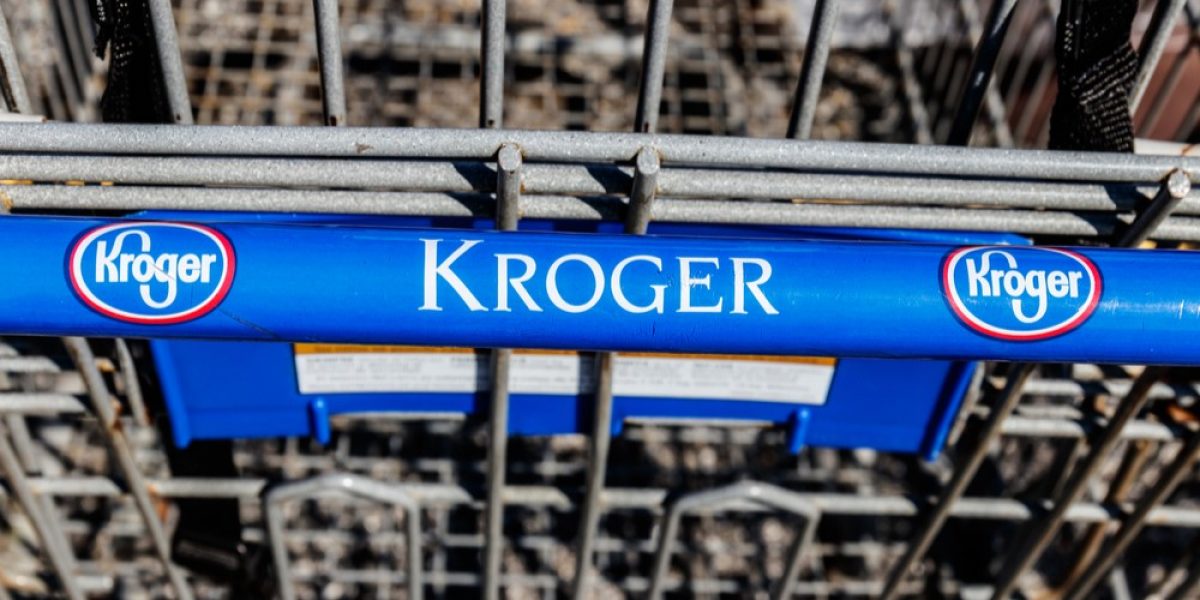Slowing inflation is having a significant impact on Kroger’s sales, presenting a complex situation where good news for consumers might translate to bad news for the supermarket giant. In this article, we delve into the repercussions of stabilizing or falling grocery prices on Kroger’s fiscal performance. We will also explore factors contributing to these dynamics, including Kroger’s settlement of opioid crisis claims and its response to changing consumer behaviors.
Slowing Inflation and Kroger’s Sales
As grocery prices stabilize or decline, Kroger is experiencing a decline in its sales, a trend that raises concerns about the company’s revenue prospects. In the fiscal second quarter, Kroger posted sales figures that missed Wall Street’s expectations. Here’s a breakdown of how Kroger performed during this period compared to analyst expectations:
- Earnings per Share: Kroger reported adjusted earnings per share of 96 cents, surpassing the expected 91 cents.
- Revenue: The company’s revenue stood at $33.85 billion, slightly below the anticipated $34.13 billion.
Kroger also posted a net loss of $180 million, primarily attributed to its settlement of opioid crisis claims, which amounted to $1.2 billion. This settlement led to a $1.4 billion charge, resulting in a loss per share of $1.54. Net sales fell from $34.64 billion in the previous year.
Inflation’s Impact on Retailers
The impact of inflation on retailers is nuanced. While it can contribute to higher overall sales as consumers pay more for various items, it can also reduce the volume of merchandise sold, particularly discretionary purchases. Retail giants like Target and Walmart have noted changes in consumer behavior, with shoppers prioritizing essentials over discretionary items. Kroger, with its focus on groceries, has been somewhat insulated from this effect. However, there is a risk that customers may turn to lower-priced competitors such as Walmart, Aldi, or Dollar General.
Home Depot has experienced a similar dynamic as lumber prices have cooled, impacting sales of big-ticket items. In the fiscal second quarter, Kroger’s identical sales without fuel grew by 1%, slightly below analysts’ expectations of a 1.2% gain.
Kroger’s Outlook
Despite the challenges posed by slowing inflation and changing consumer trends, Kroger has reaffirmed its full-year guidance. The company expects identical sales, excluding fuel, to range between 1% and 2%. Adjusted net earnings are projected to be between $4.45 and $4.60 per share, including the benefit of an extra week in the fiscal year. However, Chief Financial Officer Gary Millerchip anticipates that identical sales will be at the lower end of the annual range, with a slight negative impact in the latter half of the year, excluding fuel.
Kroger expects inflation to continue decelerating, creating a more challenging environment for consumers. Despite this, CEO Rodney McMullen believes that slowing inflation could lead to volume improvements. Consumer packaged goods companies have become more open to collaborating with Kroger on pricing, aiming to maintain their sales amidst consumer budget constraints.
Adapting to Changing Consumer Behavior
Kroger is proactively responding to changing consumer behavior by offering lower-priced items from its own brands, personalized discounts, fuel rewards, and weekly specials. Some consumers are adjusting their shopping habits, opting for smaller quantities or choosing the most cost-effective options.
Online Sales and Retail Crime
Kroger has experienced notable gains in online sales, with a 12% year-over-year increase. The company has expanded its online presence to new markets, including Florida, by establishing large warehouses to fulfill online orders. Additionally, Kroger, like other retailers, faces challenges from organized retail crime, resulting in increased shrinkage. The company is taking measures to enhance security and combat theft but expects these trends to persist throughout the year.
Takeaway
The dynamics of slowing inflation are reshaping Kroger’s sales landscape. While this presents challenges, it also offers opportunities for the company to adapt and cater to budget-conscious consumers. Kroger’s response to these changes will be pivotal in determining its performance in the coming months and how it navigates the evolving retail landscape.






